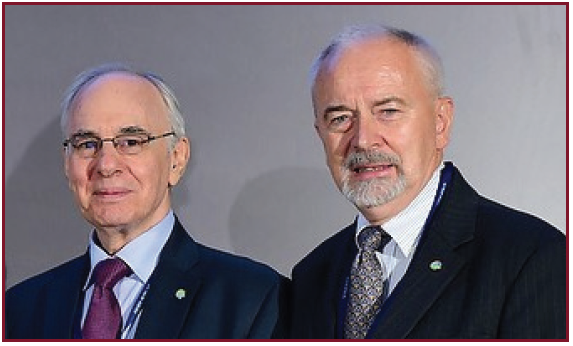| Click here for PDF version | |||

Seoul conference proposes New Paradigm for Global Peace & Human Security |
|||
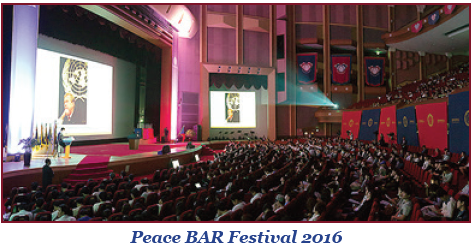
The work of the Academy on the multidimensional crises confronting humanity today points to the need for new approaches and concerted action at six different levels of social existence. It requires a radical shift in policies toward sustainable human security, welfare and well-being; democratization and strengthening of the institutions for global governance; more transparent, equitable distribution of social power; formulation of integrated, transdisciplinary social theory; shift to active, value-based, student-centered, customized education focusing on development of personality and individuality; and, at the deepest level, founded on more integrated, creative modes of thinking capable of comprehending the intricate complexity and organic unity of existence. While most attention has been given to effective policy and institutional reform, these are not sufficient. Effective action also requires change at all the deeper levels. To explore these issues, the World Academy of Art & Science and the World University Consortium collaborated with Kyung Hee University (KHU) and hosted an international conference in Seoul on the theme “New Paradigm and Planetary Engagement: A Call for Responsibility” on September 21-23, 2016. This event marked the 21st celebration of the UN International Day of Peace since KHU’s proposal for commemoration of this date was ratified by the UN General Assembly in November 1981. The efforts made by Young-seek Choue, the founder of KHU, in Costa Rica in 1981 to establish the UN International Day of Peace and the International Year of Peace was recalled by Heitor Gurgulino de Souza in his opening remarks. |
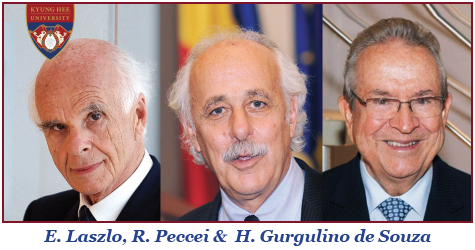
In his video message to the conference, UN Secretary-General Ban Ki-moon said, “While we live in an era of uncertainty, that can also be an opportunity for us to lead the world in the better direction. On this day of International Peace let us dedicate our thoughts to world peace through achieving Sustainable Development Goals (SDGs).” 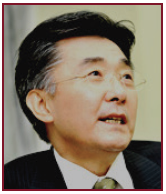 In his keynote speech Inwon Choue, President of KHU and newly elected Fellow of WAAS, emphasized the need for action. “Recognizing the problem is not enough to solve the problems anymore.” Crises we face today “cannot be resolved with pedantic critique of reality: we must act. We need transformative politics that can strategically transcend short-term goals.” Ervin Laszlo said that a new paradigm of existence focused on the awareness of interconnectedness is not a luxury, but a necessity. “The Future is not something we predict; it is what we build. The new future is dependent on us. We are the architects of the future.” Roberto Peccei emphasized that the message of The Limits to Growth published by the Club of Rome in 1972 is still valid today and requires our foremost attention. Unregulated growth is the recipe for economic disaster. |
||
|
|
|||
| NEW PARADIGM FOR GLOBAL PEACE & SECURITY, SEOUL Colloquium on Human-centered Development Paradigm NEW CULTURE OF PEACE, NEW YORK Conference at the United Nations Headquarters LEVANTINE CULTURE AND CIVILIZATION, BUCHAREST WAAS collaborates to establish Institute for the Advanced Study of Levantine Culture and Civilization in Romania NEW WAYS OF THINKING & LEARNING, KIEV EUROPEAN FORUM OF NEW IDEAS, SOPOT |
FROM THE WAAS ARCHIVES UPCOMING EVENTS PG Course/Round-table on Human Centered Economics at the Inter-University Center, DUBROVNIK (Jan 31-Feb 3, 2017) XIV International Colloquium on Towards A Human-Centered Sustainable Economic and Social System for the 21st Century at CAPE TOWN (May 10-12, 2017) PUBLICATIONS: CADMUS FALL 2016 ISSUE |
||
 The opening presentations were followed by a two-day colloquium exploring critical dimensions of a humancentered development paradigm. The opening presentations were followed by a two-day colloquium exploring critical dimensions of a humancentered development paradigm. |
|||
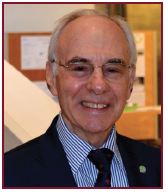 Garry Jacobs emphasized the need for fundamental changes in theory, education and the way we think. “Humanity confronts challenges of unprecedented scope, magnitude and intensity. The evolution of an increasingly complex, highly integrated global society necessitates the development of a more comprehensive and integrated science of society. Radical changes in education are essential for effectively addressing these challenges. Present knowledge is outdated and inadequate. The modes of learning and thinking fostered by the present system are insufficient. A radical reorientation of educational content and pedagogy is urgently needed.” 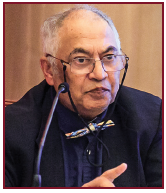 Winston Nagan explained that “the idea of human-centered development implies that the normative priority given to economic development should have a specific focus on human beings directly and not on abstractions or the exclusion of human interests from the vast aggregates of global capital accumulation.” Talking about employment as a driver of development, he emphasized that employment is more of a right than a privilege. 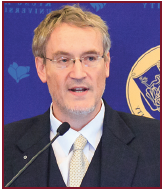 Stefan Brunnhuber stressed the importance of “creativity response” in improving the learning curve of societies. He raised the fundamental question: How do we unleash the maximum creativity in each of us when existing educational programs often lead to suboptimal outcomes? |
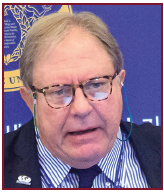 Alberto Zucconi remarked that we have already entered the fourth industrial revolution and in order to navigate it, we need an educational system that concentrates on the person rather than the subject, encourages lifelong learning, and teaches students how to learn. A shift in educational content and pedagogy is needed to emphasize the central importance of values, personality and individuality. 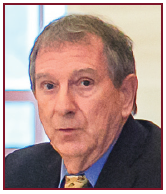 The family and social dimensions of human capital have the capacity to make a country realize its full economic potential, as analyzed by Neantro Saavedra-Rivano. Formation of human capital is an investment in human beings, which is the main source of wealth of nations.
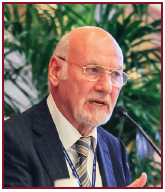 Erich Hoedl underlined that human-centred societal development should refer to both ecological and social limits. After making considerable progress in knowledge of nature, we have now to address critical societal questions. Characterising the role of mankind as the “anthropocene” does not provide insight into the highly complex societal structures and rigidities that inhibit the unfolding of human potential and creativity. We are on the eve of a renaissance of social sciences in intimate cooperation with natural sciences, which is needed to cope with the immense challenges of ecological, social and economic sustainability. |
||
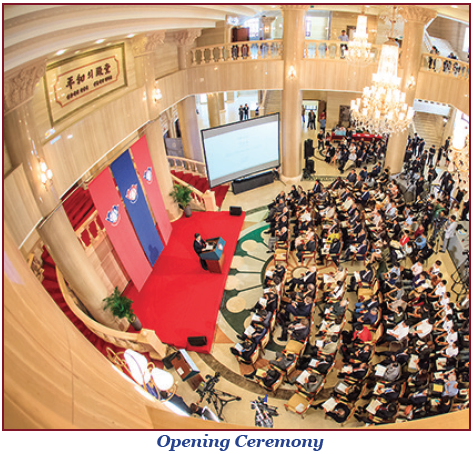 |
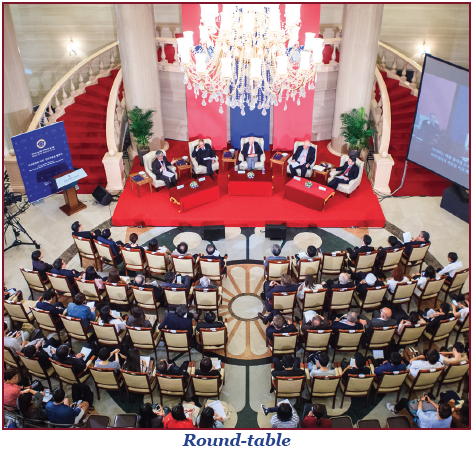 |
||

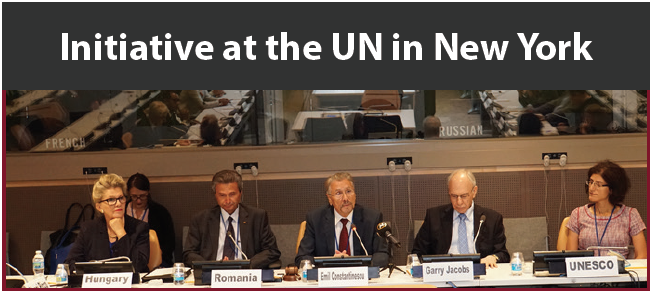 Emil Constantinescu, Former President of Romania, chaired a meeting at the United Nations in New York on September 14, 2016 on “Global Peace Initiative Levant, the Foundation for a New Culture of Peace.” Speakers included WAAS Fellows Ambassador Katalin Bogyay, Permanent Representative of Hungary to the United Nations, and Garry Jacobs, CEO of WAAS and WUC. Other participants included Ambassador Ion Jinga, Permanent Representative of Romania to the United Nations; Lily Valtchanova, Liaison Officer, UNESCO; Shoshana Bekerman, Secretary General of the Interparliamentary Coalition for Global Ethics; Gianni Picco, former Under-Secretary General of the United Nations; and representatives of Buddhist, Christian, Jewish and Islamic religious organizations. The initiative of the Global Peace Levant was initially launched at the annual conference of the Institute for Cultural Diplomacy in Berlin by President Constantinescu in 2011. The UN General Assembly will promote the “Parliamentary Initiative Multi Track Council for the SDGs and the Culture of Peace” to create a culture of peace which will have its roots in the education of the younger generation. Romania’s role in promoting higher education in the field of cultural diplomacy has led to an act of the Romanian parliament establishing the Institute for the Advanced Study of Levantine Culture and Civilization in Bucharest as a center of excellence of the World Academy of Art & Science. |
|||
Establishment of the Institute for the Advanced Study of Levantine Culture and Civilization
|
|||
 |
|||
|
On October 5, 2016 WAAS co-organised a meeting with our Ukrainian partner The Bohdan Hawrylyshyn Charitable Foundation (BHCF) for a lecture by Garry Jacobs on the theme of Mind, Thinking and Creativity. The participants included more than 70 graduates of the “Young Generations will change Ukraine” programme. We live in a time of unprecedented opportunities and intractable problems. The greater opportunities are real to our reason and imagination but remain unrealized. The problems are intense, urgent, and tangible to our senses, but solutions remain beyond reach. Today, humanity possesses the capacity to meet the needs and secure the welfare of every person on earth, yet the problems persist and the opportunities remain elusive. Solutions exist and opportunities abound, but not within the boundaries of our present conceptual framework. Knowledge determines our capacity for accomplishment. Our consciousness determines our knowledge. The rational mind is the highest evolved status of human consciousness. The evolution of mind and civilization have proceeded hand in hand for millennia. Each stage in the development of civilization has shaped the evolution of the human mind and its faculties and the way they are applied in life. Yet mind remains at best an imperfectly developed instrument of knowledge imperfectly applied. The limits to our knowledge and accomplishment reflect limits to our rationality and the utilization of our mental potential. We are limited by the way we use the remarkable powers of mind. Our knowledge consists of fragmented, piecemeal, compartmentalized theories, when the reality we seek to understand is inclusive, complex and integrated. The way we think determines the kind of knowledge we acquire and the way we comprehend reality. Humanity has developed a |
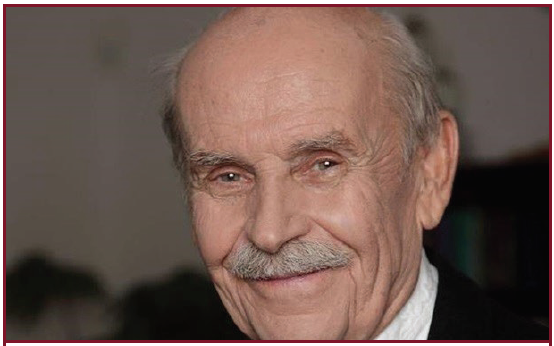
Bohdan Hawrylyshyn, who was a longstanding Fellow and active WAAS Trustee, celebrated his 90th birthday on October 19th, 2016 and passed away on October 24th, 2016. The Board of Trustees of the Academy recognizes his outstanding achievements and contribution to his country and humanity at large. WAAS and the Foundation will continue to actively collaborate. variety of ways of thinking, each reflective of a particular capacity of the human mind. This suggests that our persistent problems and incapacities may reflect inherent limitations in the type of thinking on which present knowledge is founded. This thus necessitates a new paradigm in education, which calls for new ways of thinking and learning. The new paradigm in education hence calls for a shift in both content and pedagogy and moving from mere regurgitation of facts to creative original thinking, which can only become realistic when we move from the centuries old system to a system that is more in tune with reality as it is today. |
||
 |
|||
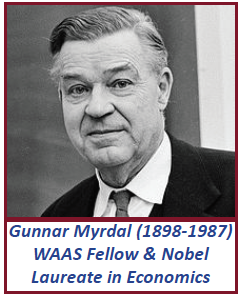 “The social sciences emerged some two hundred years ago from the metaphysical, and more precisely teleological, philosophies of natural law and utilitarianism. In these philosophies objective values were supposed to exist, i.e., to be facts and to be ascertainable. By becoming less clear about this philosophical foundation of objective values or even evading them to the point of landing into naïve positivism, the social scientists have not solved the problem about the role of valuations in determining their research. |
The objects of our research in the social sciences are always living conditions, institutions and human attitudes. These phenomena regularly combine changeability and rigidity in an unstable and to a large part inscrutable pattern—this is the reason why never reach down to constants. The relevant institutions and attitudes are exceedingly difficult to define, to observe and to analyse. I should add here that when some of us attempt to emulate the methods of natural scientists working with simpler problems, this has regularly led to a dangerous superficiality in approach.” — Gunnar Myrdal, “Biases in social research,” in The Place of Value in a World of Facts, Ed. Arne Tiselius & Sam Nilsson (Uppsala: Almqvist & Wiksells Boktryckeri AB, 1970) |
||
 |
|||
|
The European Forum of New Ideas (EFNI) is an international business congress attended by prominent representatives of politics, culture, science, and media. It has been organized since 2011 by the Polish Confederation Lewiatan in cooperation with Business Europe, the city of Sopot, and Polish and foreign companies and organizations. This year the EFNI focused on the Future of Work: Realities, Dreams and Delusions. It had 1141 attendees from 23 countries, and its 121 panelists and 96 invited speakers filled 64 hours of panel discussion and plenary sessions with speeches and debates. WAAS participated in the annual EFNI event held at Sopot, Poland from September 28-30, 2016 as a Knowledge Partner for the 5th time.
Represented by Zbigniew Bochniarz and Garry Jacobs, WAAS organized a special interactive session on human-centered intensive strategies for enduring corporate success with two Polish business leaders—Przemyslaw Powalacz (Generti) and Ireneusz Martyniuk (Polpharma). The session focused on the effectiveness of a values-based approach to elevating business performance. It examined the theme that any company, regardless of its size, the industry or location, is capable of achieving quick, lasting and profitable growth by tapping into 5 unlimited energy sources—market, technology, people, capital and organization. First, it must set a clear goal, backed by solid commitment to its achievement. The key is the right energy of |
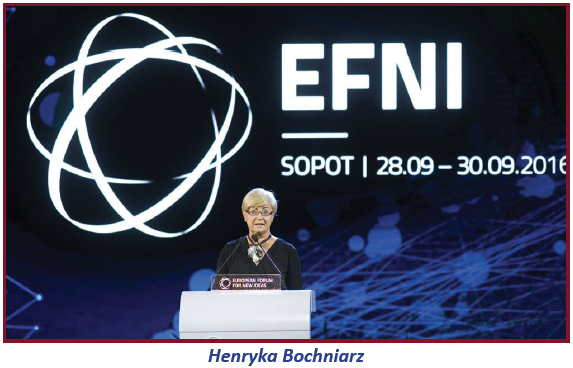 the organization, which trickles down from the very top. Developing human capital should be the fundamental priority of every company. Investments in raising skills and the appropriate incentives to motivate teams to work are of key importance. the organization, which trickles down from the very top. Developing human capital should be the fundamental priority of every company. Investments in raising skills and the appropriate incentives to motivate teams to work are of key importance.
At the closing session of EFNI, the participants adopted the EFNI 2016 Declaration titled Values are the Foundation of United Europe. The Declaration lists the hopes and ideas that answer the question: What kind of Europe do we want? They paint the following picture of the continent:
|
||
 II Cultural Innovation International Prize 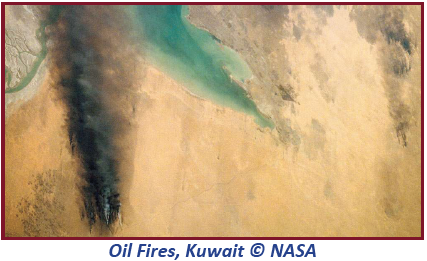 How can we tackle the challenges of climate change from the cultural sphere? The second award of the Cultural Innovation International Prize encourages projects that offer imaginative and effective solutions to one of the biggest global problems of the 21st century. The Prize is open to cultural innovative projects that raise awareness about climate change. The proposal must empower and involve society actively in commitment to environmental responsibility. The winning project will be included in the exhibition “After the End of the World” (October 2017). For more information, please click here. |
|||

|
|||
|
The multidimensional challenges confronting humanity today are human-made and can be changed by a change in thought and action. Contemporary economic thought is built on a mind-frame that originated prior to the Industrial Revolution when scarcity of goods in a world of abundant resources was the primary concern, economic growth was considered synonymous with human welfare, and impact of humanity on the environment was completely ignored. Without challenging obvious flaws in existing theory, it will not be possible to significantly alter current policies and practices. The overall aim of the roundtable discussion is to demonstrate why mainstream neo-classical economic theory is inappropriate for dealing with the global challenges of the 21st century, and explore alternative approaches for achieving ecologically sustainable, human-centered development and welfare for all. This meeting will examine the findings of a five year research program of the World Academy of Art & Science and the on-going work of the New Economic Theory working group. |
It will harness the best available ideas and practices on human-centered, sustainable economy to create informative, authoritative and compelling educational and communication tools with the power to challenge and alter university level education in economics, public policy, business decisions, media coverage and general public opinion regarding how the world economy should and can work for the betterment of all humanity.
COURSE DIRECTORS: Garry Jacobs, CEO, WAAS; Chairman and CEO, World University Consortium. Goran Bandov, Associate Fellow of WAAS; Vice Dean, Dag Hammarskjöld University College of International Relations & Diplomacy, Zagreb, Croatia. For more information, click here or write to support@worldacademy.org |
||

Contents of the Latest Cadmus Issue – October 2016 |
|||
|
The Need for Person-Centered Education by Alberto Zucconi The Concept, Basis and Implications of Human-Centered Development by Winston P. Nagan Financing Human Capital: Families & Society by Neantro Saavedra-Rivano Integrated Approach to Peace & Human Security in the 21st Century by Garry Jacobs A Flat World with Deep Fractures |
Unifying Subjectivity and Objectivity by Murugesan Chandrasekaran Social Power, Law and Society by Saulo Casali Bahia On the Conditions of Collective Action in Globalisation by Augusto Santos Silva Blind Spots of Interdisciplinary Collaboration: Monetising Biodiversity by Joachim H. Spangenberg Rethinking Economics, the Role of Insurance: Adam Smith Upside Down by Orio Giarini Domesticating Finance for Pursuing Post-Crisis Growth by Dimitrios Kyriakou Towards a Conceptual System for Managing in the Anthropocene by Robert Hoffman |
||

|
|||
|
The XIV International Colloquium to take place in Stellenbosch, South Africa in May 2017 has the theme “Towards a Human-Centered Sustainable Economic and Social System for the 21st Century”. It aims to promote understanding of the global challenges facing humanity, through scientific analysis, recognizing the interconnectedness of today’s global socioeconomic challenges. The industrial, scientific and technological revolutions of the last two centuries have brought previously unimaginable economic prosperity to several billion people in what is now a truly globalized world. At the same time poverty persists and unemployment, inequality, economic and social instability are getting worse. The great transformations to our natural and human environments pose real threats to both human welfare and the planet. So far, governance institutions have not been able to adapt to this new Anthropocene Age nor to distribute evenly and fairly the fruits of knowledge and progress. The Colloquium calls for novel thinking and action in relation to the need for a truly human-centered and sustainable economic and social system, one that ensures adequate attention to human needs, economic prosperity,fair distribution and sustainable use |
of natural resources. The Colloquium stimulates papers in the fields of: economic inequality and contradictions between human welfare and ecological sustainability, social and potential power to achieve human civilization, alternative governance arrangements appropriate for challenges we face, implicit premises underlying contemporary economic theories and policies, changes in socioeconomic thinking as an interpretative framework of human welfare and well-being, society and economy as complex systems, new schemes for managing the role of money and financial markets in promoting human-centered development.
The various panels will discuss main issues in the world economy rarely addressed by current literature. Paper Submission |
||
Security & Sustainability Guide: 1500+ Organizations Pursuing Essential Global Goals |
|||
|
This guide has been prepared by WAAS Fellows Michael Marien and David Harries, and their colleague Michael Sales. The key rationale for this project is that progress towards the two “global goals” of security and sustainability depends on addressing both: we cannot have security without sustainability, or sustainability without security, broadly defined. The project is still incomplete, with at least several hundred additional international organizations and organizations of international interest to be added, and considerable editing needed for the index. An updated Interim Draft of some 1800 organizations should be available in early 2017. Even in its work-in-progress state, the “S&S Guide” should be of interest to some or, perhaps, many WAAS Fellows. Your feedback at this early stage could be important in shaping the project, which, in turn, will help WAAS continue to build a public position and multi-purpose tool on important global issues. WAAS Fellows are an invaluable “test panel” resource for this |
potentially important and transformative project. Please send feedback to any/all of the four questions listed below to ssguide@worldacademy.org.
|
||
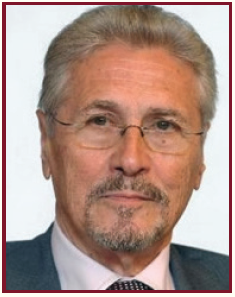
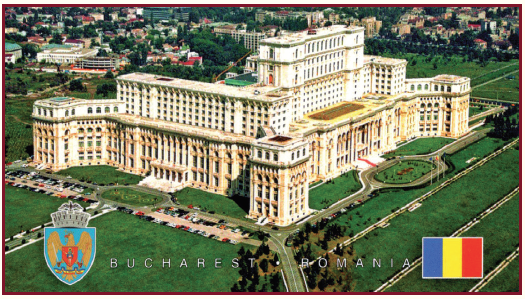 biological, geographical and archeological areas that are representative of the international cultural heritage, with the cooperation of the academic community and local communities, by extending the UNESCO global geopark network to the region; promoting dialogue between peoples in the Levantine historical space to create a culture of peace through dialogue between academia, religious leaders and younger generations.
biological, geographical and archeological areas that are representative of the international cultural heritage, with the cooperation of the academic community and local communities, by extending the UNESCO global geopark network to the region; promoting dialogue between peoples in the Levantine historical space to create a culture of peace through dialogue between academia, religious leaders and younger generations.
